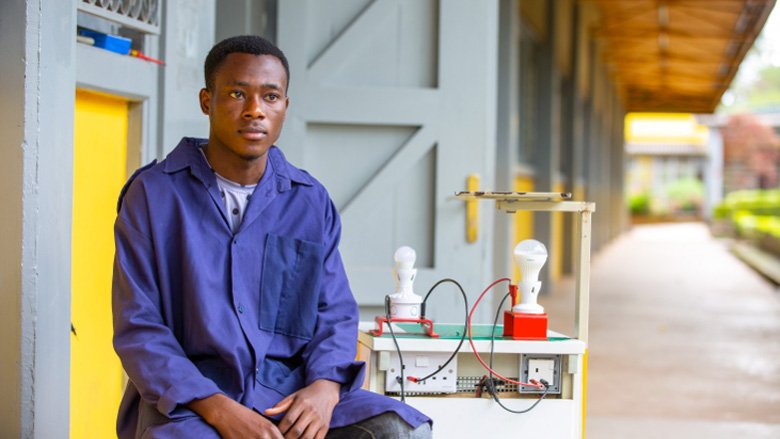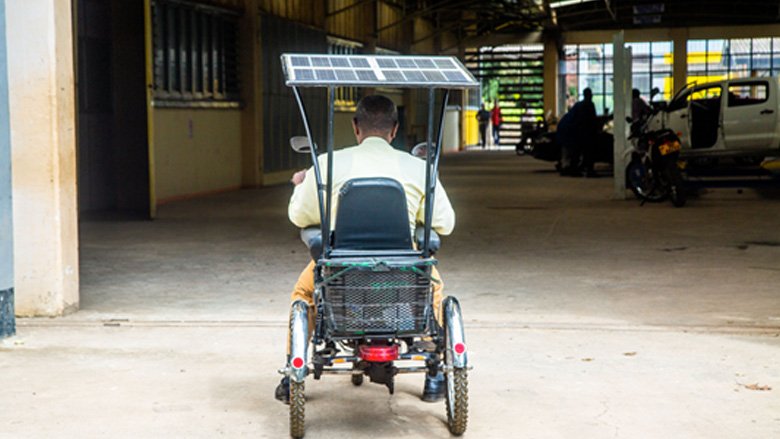ARUSHA, Tanzania. It is presentation day at the Arusha Technical College’s (ATC) Solar Training Center for third-year students pursuing diploma studies in electrical and hydropower engineering. Each student has been tasked to showcase their innovative movable solar systems, an assignment that bears a significant contribution to their final grade.
While the stakes seem high, many students appear quite calm. Lucas Paul Nyambalya, 22, is excited to present his 24-voltage portable solar system, which simultaneously lights up bulbs and charges electronic devices. “We are very lucky to have very skilled and practically oriented teachers,” Lucas said. “They are very involved in the work we do, helping us to conceptualize and develop our projects, and guiding us in the tools and supplies we need.”
In fact, the teachers’ approach and helpful engagement at ATC was not always the way that Lucas describes it. Emmanuel Kasi, a Senior Instructor in the Electrical Engineering Department, has worked at the college for over 10 years; he remembers when students were not exposed to in-service training and capacity building, and teachers worked with outdated curricula that conspicuously focused more on theoretical knowledge than practical application.
Teachers and other trainers are fundamental to the implementation of the East Africa Skills for Transformation and Regional Integration Project (EASTRIP), whose objective is to increase access to programs at TVETs—Technical and Vocational Colleges—in selected, flagship institutes (RFTIs), improve their quality, and support regional integration in East Africa.
In 2019, the ATC was selected alongside 15 other RFTIs in Tanzania, Kenya, and Ethiopia to benefit from $293 million in World Bank International Development Association (IDA)support for the development of highly specialized TVET programs, as well as industry-recognized, short-term, certificate-level training.
EASTRIP is training technicians and teachers at certificate, diploma, and degree levels in sectors that are regional priorities—transport, energy, agriculture, manufacturing, and ICT. “This includes industry attachments so we can apply our learning and be better equipped to impart knowledge to our students effectively,” said Kasi, fresh from an attachment at ENSOL, a solar energy supplier. “We never had this kind of exposure before.”


